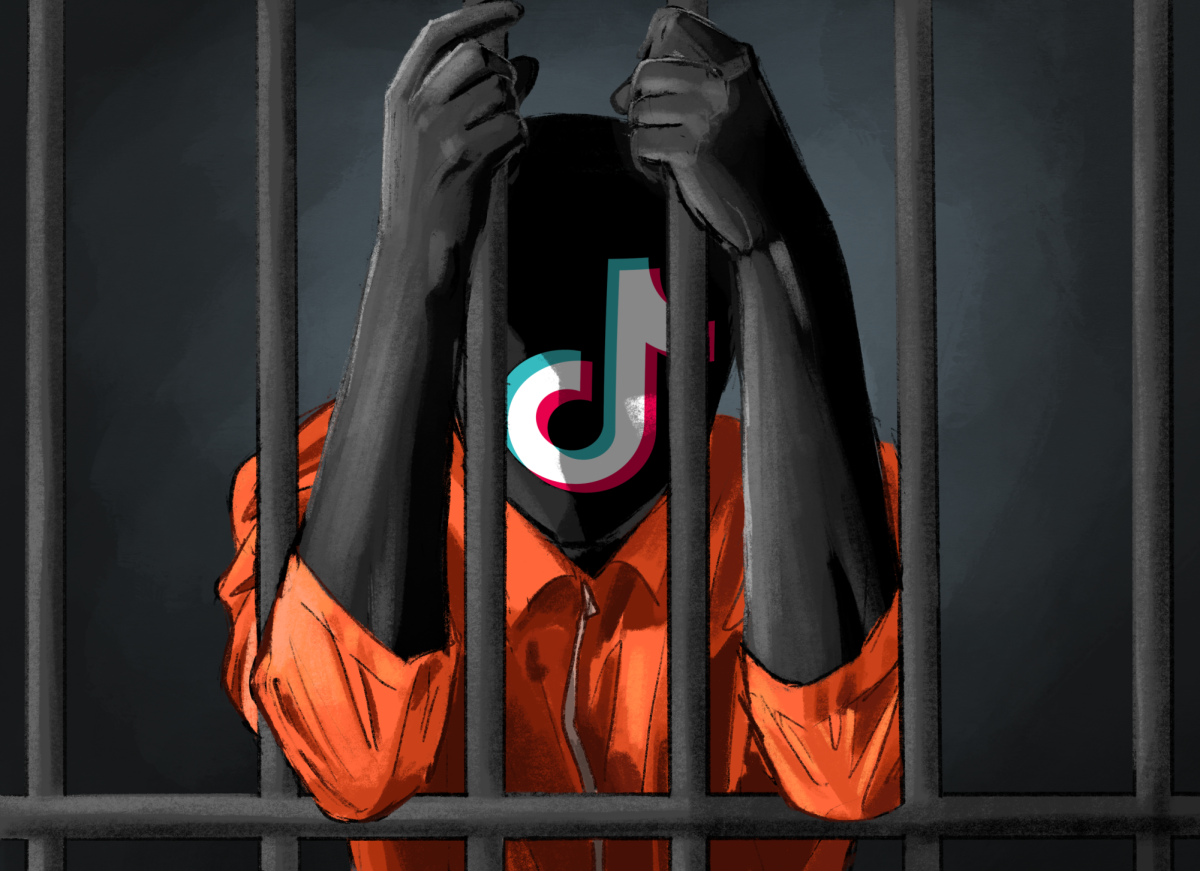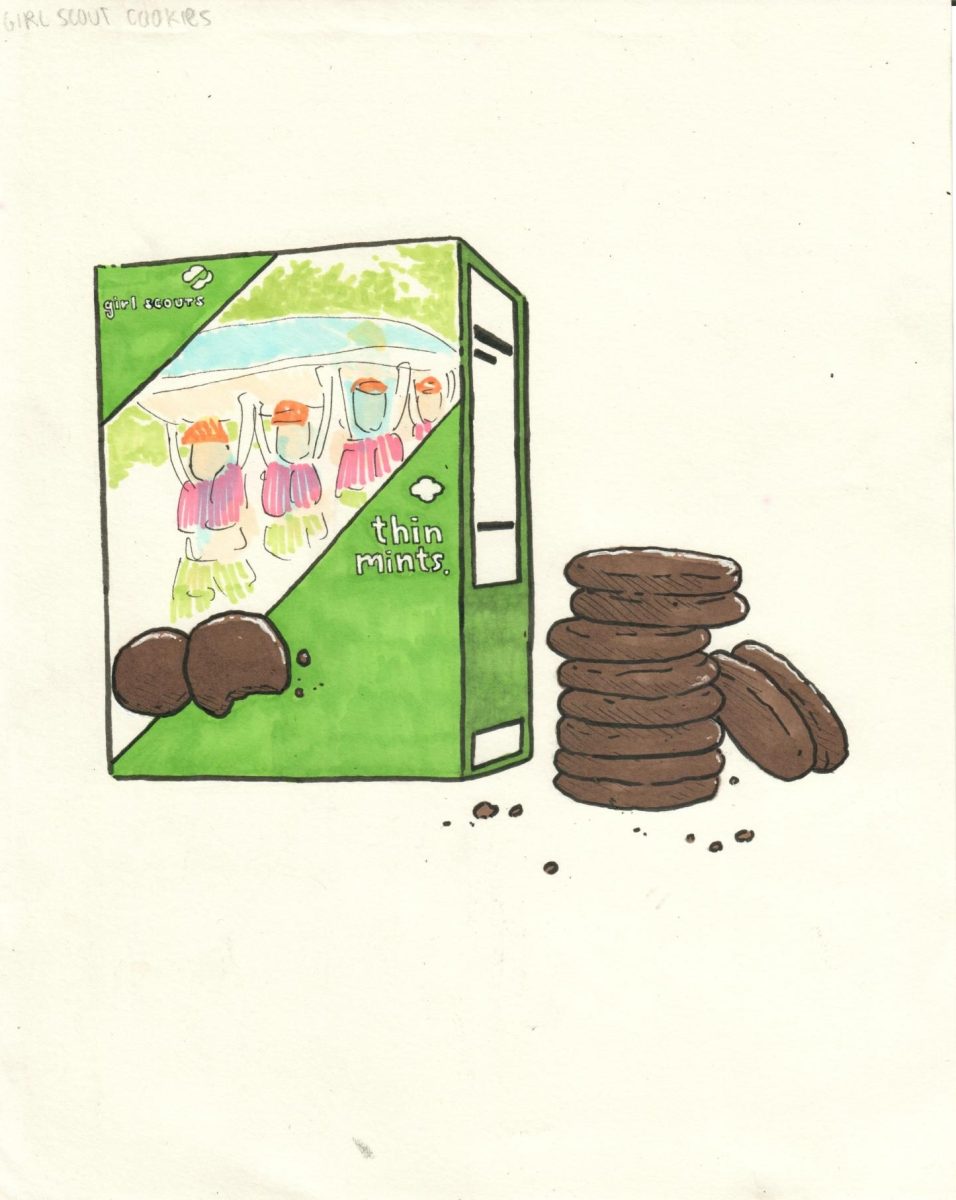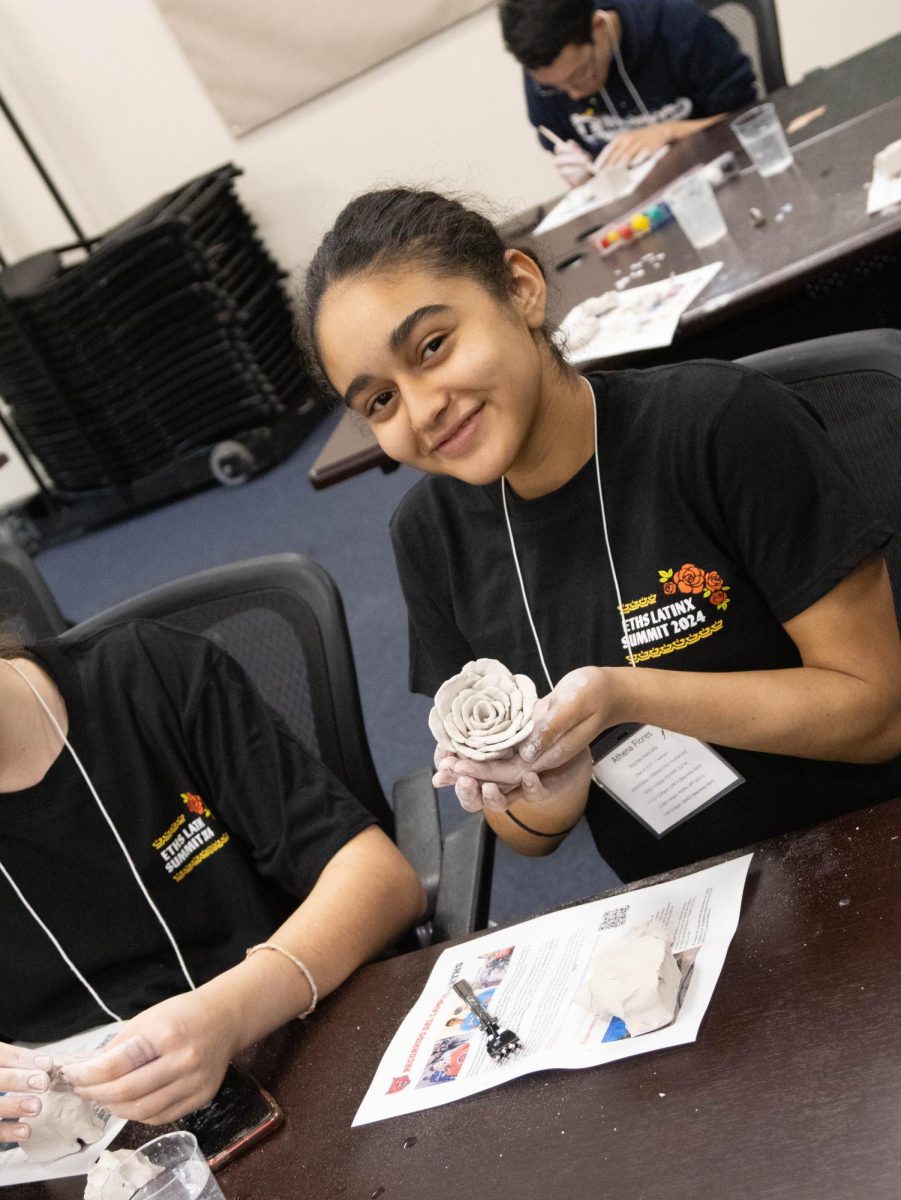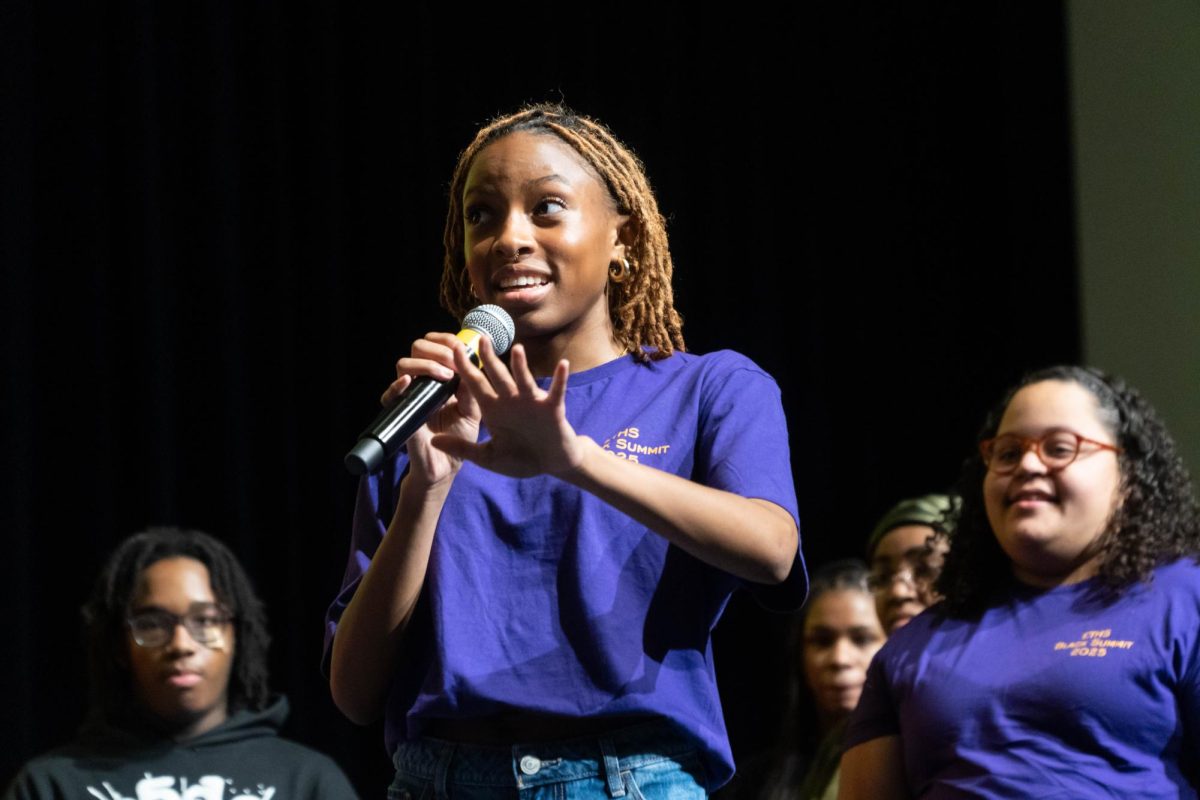TikTok, a short-form video-sharing app, was banned for only hours on Jan. 19, but the clock is still ticking on the app’s ban. After a unanimous Supreme Court decision upheld the ban, President Donald Trump pushed back the date when it will begin. TikTok is currently available in the United States, but it must be sold to an American company by Apr. 5, 75 days after the executive order, or it will go dark again.
To many TikTok users, the app is only a mode of entertainment that can bring people together: according to Pew Research Center, 95% of users say they go on the platform because it’s entertaining.
“I think TikTok is valuable for creating communities because it helps to get people with the same interests in the same place,” said Chloe Ross, an ETHS sophomore. “TikTok is also a lot more personal than other apps, and it feels more anonymous. Sometimes I’m kind of drained, so I go on TikTok.”
ByteDance, the Chinese company that owns TikTok, has argued that banning the app violates the company’s First Amendment right to freedom of speech. In the Supreme Court case, ByteDance argued that the American government should not ban the app because the company has the right to create what they want. The Supreme Court ruled unanimously against ByteDance and in favor of the ban.
However, TikTok users admit that the app can also cause negative effects. “The problem is that people get so addicted to the passive consumption of media,” said Ross. Cayden Rogers, a sophomore at ETHS, deleted TikTok, added it back the week before its ban, and then finally deleted it again. Since TikTok is still not available to download, the app is now permanently removed from her phone. “I always spent too much time on it, and I’m glad I deleted it,” Rogers said.
TikTok also can quickly spread misinformation or harmful content. It’s difficult for users to fact-check everything they see on the app, and according to Pew Research Center, about 4 in 10 young adults in the U.S. regularly get their news from TikTok. The United States government, however, is more concerned about data collection by the Chinese government. Chinese law requires ByteDance to share user data if asked by the government, although TikTok says its data has never been requested.
“I don’t have TikTok, but I have Instagram. I understand if this is a matter of national security,” said Eva Hansen, an ETHS junior. “I don’t want all of my data being stolen.”
There are also fears that Chinese propaganda will spread on TikTok and affect the actions of American TikTok users.
“While the threat may be somewhat exaggerated,” explained Gadi Stieber, an ETHS junior, “the fact remains that it is a company that collects Americans’ data, controls what they see and is housed in a foreign adversary. Given the fact that the Surgeon General has spoken on the adverse impacts of social media, I think it is probably better for the nation that we ban it.”
When TikTok became available again after the original twelve-hour ban, it displayed a thank-you message to all users, crediting President Trump for bringing the app back.
“It was kind of weird how [TikTok] said ‘thank you President Trump’ in the message,” said Annika Wartowski, a junior at ETHS. “Welcome back! Thanks for your patience and support,” the full message read. “As a result of President Trump’s efforts, TikTok is back in the U.S.!”
Extending the TikTok ban was one of President Trump’s first actions in office, even though he proposed and supported the ban in 2020, making some people suspicious of his political motivation.
“I think the TikTok ban is stupid,” said Norah Tillery, an ETHS sophomore. “I think that the whole Trump saving TikTok thing is propaganda to make younger people like him more.”
Since the law that banned TikTok conflicts with the president’s executive order, U.S. companies are unclear which rules they have to follow. Apple and Google have chosen to continue following the law and do not offer TikTok in their app stores, meaning it cannot be downloaded or updated by American users.
Some TikTok users have turned to other apps for entertainment. “It’s a nice app to have, but at the same time, there are other alternatives,” said Meital Hailpern, an ETHS junior. Instagram Reels, YouTube Shorts, Lemon8 and RedNote, are some of these alternatives. Annika Wartowski, a junior at ETHS, prefers Instagram Reels.
“Reels is better because it’s funny and healthier. It’s not as addictive but still funny,” Wartowski said. “I’m a proud Instagram Reels user.”
Not everyone is happy with these alternate options to TikTok, though. RedNote, another ByteDance app, is similar to Instagram, and some users felt that it didn’t compare to TikTok.
“It was the worst twelve hours of my life,” said Alexa Llanes, an ETHS sophomore. “I had to download RedNote.”
For now, TikTok can still be used on phones that already have the app installed, and some old phones with TikTok on them are being sold for thousands of dollars. Elon Musk, Kevin O’Leary (Shark Tank’s “Mr. Wonderful”) and YouTuber MrBeast are potential bidders for TikTok since the app must be sold to an American company by Apr. 5, when the 75-day extension ends or it will become unavailable again. Many TikTok users’ lives will change whether the app is banned or sold.







